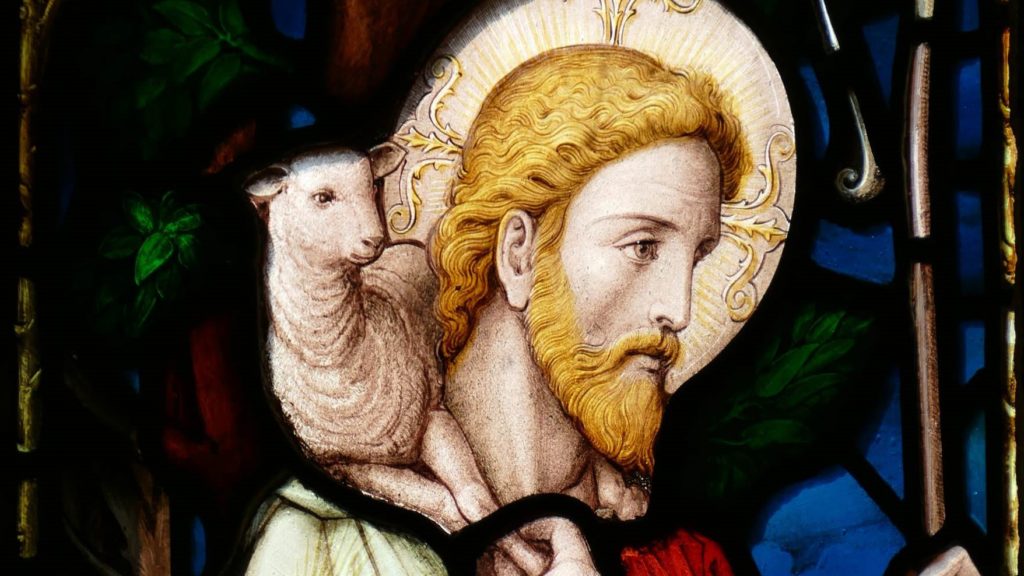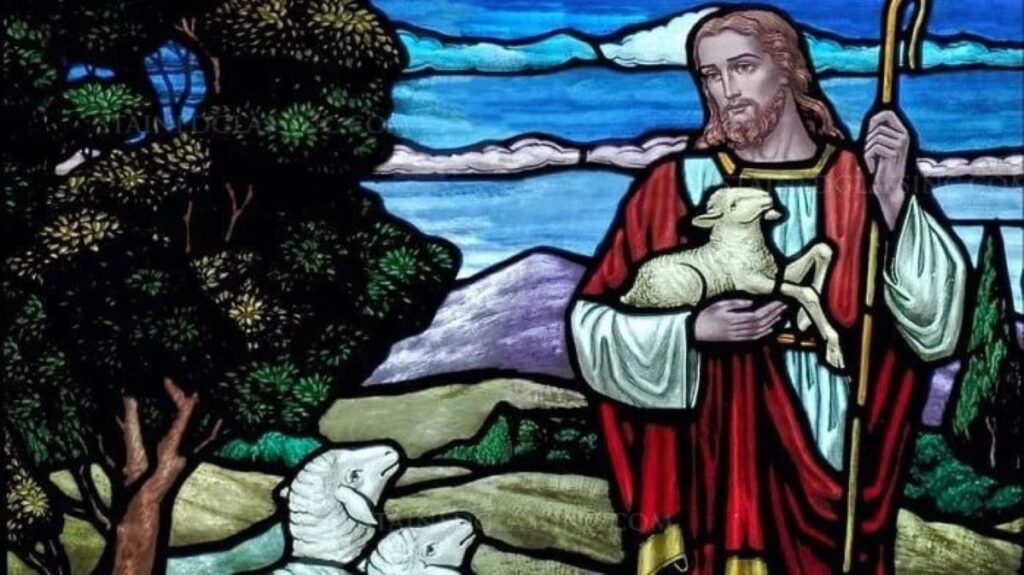POPE FRANCIS ON THE
16TH SUNDAY IN ORDINARY TIME YEAR B

ANGELUS
Saint Peter’s Square
16th Sunday in Ordinary Time Year B, 18 July 2021
______________________________
Dear brothers and sisters, buongiorno!
Jesus’s attitude that we observe in the Gospel of today’s liturgy (Mk 6:30-34) helps us to grasp two important aspects of life. The first is rest. To the Apostles returning from the labours of the mission who enthusiastically begin to relate everything they had done, Jesus tenderly directs this invitation to the Apostles: “Come away by yourselves to a lonely place, and rest a while” (v. 31). An invitation to rest.
In so doing, Jesus gives us a valuable teaching. Even though he rejoices on seeing his disciples’ happiness due to the wonders of their preaching, he does not spend time giving them compliments or asking questions. Rather, he is concerned about their physical and interior tiredness. And why does he do this? Because he wants to make them aware of a danger that is always lurking there for us too: the danger to be caught up in the frenzy of doing things, to fall into the trap of activism where what is most important are the results that we obtain and the feeling of being absolute protagonists. How many times this happens in the Church: we are busy, we run around, we think that everything depends on us and, in the end, we risk neglecting Jesus and we always make ourselves the centre. This is why He invites His disciples to rest a bit with Him on their own. It is not only physical rest, but also rest for the heart. For it is not enough to “unplug” ourselves, we need to truly rest. And how do we do this? To do so, we must return to the heart of things: to stop, to remain in silence, to pray so as not to go from the frenzy of work to the frenzy of times of relaxation. Jesus did not neglect the needs of the crowd, but each day, before anything else, he would withdraw in prayer, in silence, in intimacy with the Father. His tender invitation – rest a while – should accompany us. Let us beware, brothers and sisters, of efficiency, let us put a halt to the frantic running around dictated by our agendas. Let us learn how to take a break, to turn off the mobile phone, to contemplate nature, to regenerate ourselves in dialogue with God.
Nonetheless, the Gospel tells us that Jesus and his disciples could not rest as they had wished. The people find them and flock to them from all sides. At which point, he is moved with compassion. This is the second aspect: compassion, which is God’s style. God’s style is to draw near, compassion and tenderness. How many times we find this phrase in the Gospel, in the Bible: “He had compassion on them”. Touched, Jesus dedicates himself to the people and begins to teach again (cf. vv. 33-34). This seems to be a contradiction, but in reality, it is not. In fact, only a heart that does not allow itself to be taken over by hastiness is capable of being moved; that is, of not allowing itself to be caught up in itself and by things to do, and is aware of others, of their wounds, their needs. Compassion is born from contemplation. If we learn to truly rest, we become capable of true compassion; if we cultivate a contemplative outlook, we will carry out our activities without that rapacious attitude of those who want to possess and consume everything; if we stay in touch with the Lord and do not anesthetise the deepest part of ourselves, the things to do will not have the power to cause us to get winded or devour us. We need – listen to this – we need an “ecology of the heart”, that is made up of rest, contemplation and compassion. Let us take advantage of the summer time for this! It will help us quite a bit.
And now, let us pray to the Madonna, who cultivated silence, prayer and contemplation and who is always moved with tender compassion for us, her children.
_____________
Source: https://www.vatican.va/content/francesco/en/angelus/2021/documents/papa-francesco_angelus_20210718.html
EMPHASIS MINE.

ANGELUS
Saint Peter’s Square
16th Sunday in Ordinary Time Year B, 22 July 2018
Dear Brothers and Sisters,
Today’s Gospel passage (Mk 6:30-34) tells us that after their first mission, the Apostles returned to Jesus and told him “all that they had done and taught” (v. 30). After the experience of the mission, which was undoubtedly thrilling but also arduous, they needed to rest. And understanding this well, Jesus wished to give them some relief and said to them, “Come away by yourselves to a lonely place, and rest for a while” (v. 31). But Jesus’ intention could not be fulfilled this time because the crowd, guessing the location of the lonely place where he would take the disciples by boat, ran there and got there ahead of them.
The same can happen today. At times we are not able to complete our projects because something urgent and unexpected occurs, disrupting our plans and [this] requires flexibility and being available to the needs of others.
In these situations, we are called to imitate what Jesus did: “As he landed he saw a great throng, and he had compassion on them, because they were like sheep without a shepherd; and he began to teach them many things” (v. 34). With this brief sentence, the Evangelist offers us a flash of singular intensity, taking a snapshot of the eyes of the divine Master and his teaching. Let us observe the three verbs in this frame: to see, to have compassion, to teach. We can call them the Shepherd’s verbs. The gaze of Jesus is not a neutral one — or worse, a cold and detached one because Jesus always looks with the eyes of the heart. And his heart is so tender and filled with compassion, that he is able to understand even the most hidden needs of people. Moreover, his compassion does not simply suggest an emotional response toward people in situations of distress. It is much more. It is God’s attitude and predisposition toward mankind and its history. Jesus appears as the fulfillment of God’s concern and care for his people.
Because Jesus was moved when he saw all those people in need of guidance and help, we would now expect him to perform some miracles. Instead, he began teaching them many things. This is the first bread that the Messiah offers to the starving and lost crowd; the bread of the Word. We all need the Word of truth to guide and illuminate our way. Without the truth which is Christ himself, it is not possible to find the right direction in life. When we distance ourselves from Jesus and his love, we become lost and life is transformed into disappointment and dissatisfaction. With Jesus by our side, we can proceed with confidence and overcome all trials, advancing in love toward God and neighbour. Jesus gave himself for others, thus becoming an example of love and service for each of us.
May Mary Most Holy help us to bear the problems, suffering and difficulties of our neighbours with an attitude of sharing and service.
Source: https://www.vatican.va/content/francesco/en/angelus/2018/documents/papa-francesco_angelus_20180722.html
EMPHASIS MINE

ANGELUS
Saint Peter’s Square
16th Sunday in Ordinary Time Year B, 19 July 2015
Dear Brothers and Sisters, Good morning!
I see you are braving this heat in the Square, well done!
Today’s Gospel tells us that the Apostles, after the experience of the mission, have returned content but also tired. Jesus, filled with understanding, wants to give them some relief; and so he takes them away, to a lonely place, so they can rest a while (cf. Mk 6:31). “Many saw them going, and knew … and got there ahead of them” (v. 33). From this point the Evangelist offers us the image of Jesus of singular intensity, “photographing”, so to speak, his eyes and gathering the sentiments of his heart. The Evangelist states: “As he landed he saw a great throng, and he had compassion on them, because they were like sheep without a shepherd; and he began to teach them many things” (v. 34).
Let us recall the three verbs in this evocative photogram: to see, to have compassion, to teach. We can call them the verbs of the Shepherd. To see, to have compassion, to teach. The first and second, to see and to have compassion, are always found together in the attitude of Jesus: in fact his gaze is not the gaze of a sociologist or a photojournalist, for he always gazes with “the eyes of the heart”. These two verbs, to see and to have compassion, configure Jesus as the Good Shepherd. His compassion too, is not merely a human feeling, but is the deep emotion of the Messiah in whom God’s tenderness is made flesh. From this tenderness is born Jesus’ wish to nourish the crowd with the bread of his Word, that is, to teach the Word of God to the people. Jesus sees, Jesus has compassion, Jesus teaches us. This is beautiful!
I asked the Lord that the Spirit of Jesus, the Good Shepherd, this Spirit, should guide me in the course of the Apostolic Journey which I carried out in recent days in Latin America, and which allowed me to visit Ecuador, Bolivia and Paraguay. I wholeheartedly thank God for this gift. I thank the peoples of the three countries for their warm and affectionate welcome and enthusiasm. I renew my recognition of the Authorities of these countries for their welcome and cooperation. With great affection I thank my brother Bishops, the priests, consecrated people and all the peoples for their warm participation. With these brothers and sisters I praised the Lord for the wonders that he has worked in the People of God journeying in those lands, through the faith which has enlivened and enlivens their life and their culture. We also praised him for the natural beauty with which he has enriched these countries. The Latin American Continent has great human and spiritual resources, safeguards deeply rooted Christian values, but also experiences serious social and economic problems. In order to contribute to their solution, the Church is committed to mobilizing the spiritual and moral forces of its communities, cooperating with all members of society. Before the great challenges that must be faced in proclaiming the Gospel, I urged them to draw from Christ the Lord the grace which saves and which gives strength to the commitment of Christian testimony, to enhance the spreading of the Word of God, so that the outstanding religiosity of those peoples may always bear faithful witness to the Gospel.
I entrust the fruit of this unforgettable Apostolic Journey to the maternal intercession of the Virgin Mary, whom all of Latin America venerates as its Patron with the title of Our Lady of Guadalupe.
Source: https://www.vatican.va/content/francesco/en/angelus/2015/documents/papa-francesco_angelus_20150719.html
EMPHASIS MINE
Copyright © Dicastero per la Comunicazione – Libreria Editrice Vaticana
Stay updated: subscribe by email for free TO OUR NEW WEBSITE catholicsstrivingforholiness.org (PUT YOUR EMAIL IN THE SUBSCRIBE WIDGET).
If you need some resources regarding a particular topic, feel free to use the search WIDGET which has access to thousands of posts, categories and tags on Catholic spirituality.
Cordially inviting you as well to follow www.fb.com/Catholicsstrivingforholiness. and share our posts to help more people in their Christian faith and life.
Thanks and God bless you and your loved ones! Fr. Rolly Arjonillo.

